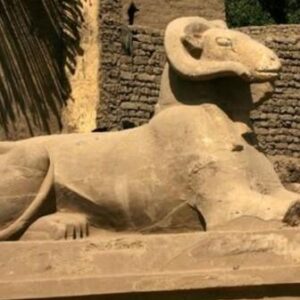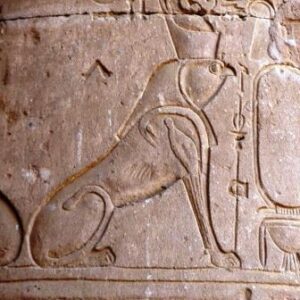Do you know what is a sphinx and what types of sphinxes are known?
In this article, find out what the Egyptian sphinx is and what the 3 types of sphinx are according to the Greek historian Herodotus.
what is a sphinx
One of the most fascinating and inspiring mythological creatures of all time is the Sphinx. But what is a sphinx really?
Its primary function was protection. It could quickly detect a threat to what it is protecting and is renowned for becoming very aggressive in its fleece.
Generally, the creature is part human, part animal, with the face and bust of a woman and the body and paws of a lion.
Some have the neck and wings of a dragon and the tail of a snake.
The Greek historian Herodotus defined three types of sphinx, as we shall see.
what the is a sphinx in Ancient Egypt
In Egypt, the sphinx was a symbol of royalty and represented life after death, and for this reason it is often depicted in reliefs in the tombs of the pharaohs.
The types of Sphinx evolve and change their appearance according to the cultural trends of each era.
Over the centuries, various artists have represented and reinterpreted the Sphinx, which can vary in appearance.
In the New Empire
During the New Empire, sphinxes were represented as gods, like Amon.
Some even represented pharaohs: the largest and oldest sculptural representation of a sphinx is the well-known Sphinx of Giza, which is believed to represent the pharaoh Chephren.

You can learn more about the Giza complex in this article.
types of sphinx
There are several types of sphinx that the Greek historian Herodotus named according to their appearance.
Thus, we have:
What is a sphinx – androsphinx

The Androsphinx: the most powerful sphinx
Characteristics of the androsphinx
It is human-shaped, has claws that can kill anyone who gets in its way and also uses its roar as a weapon.
It is recognized as having the power to heal through incantations and spells.
What is a sphinx – criosphinx

Characteristics of the Crioesphinx
The Criosphinx has the body of a lion and the head of a ram (or goat).
It’s not the most intelligent sphinx, but it is very strong and relies on its claws and horns to defend itself.
The temple of Amon in Karnak is famous for its imposing avenue lined with criosphinxes.
What is a sphinx – hieracosphinx

Characteristics of the Hieracosphinx
The Hieracosphinx: this sphinx has the body of a lion and the head and wings of a falcon (representing Horus).
Like the previous ones, it has sharp claws with which it defends itself, but it also has a very sharp beak.
Tradition has it that this type of sphinx is always found in groups.
In a temple in Kom Ombo, you can find a representation of a sphinx with the head of a falcon, representing the god Horus.
How Sphinxes were represented
We’ve already seen what is a sphinx and what types of sphinxes there are. But how were they represented artistically?
As you can see from the examples presented, the Sphinxes were represented as autonomous sculptures or as sculptures integrated into architectural elements.
But also in reliefs that decorated Egyptian temples.
Learn about the 4 types of relief in the following presentation
Treasures of architecture – from Ancient Egypt to Byzantium
Online Course
An unforgettable journey around the great monuments of antiquity – Pyramid of Giza, Temple of Amon, Parthenon, Colosseum and Hagia Sophia.
At the end of this course about the great monuments of antiquity participants will be able to recognise architectural styles, as well as the history, culture and art of the best architectural and touristic examples in the world, within each style analysed.

